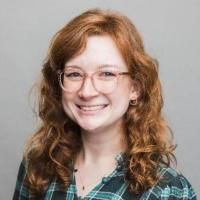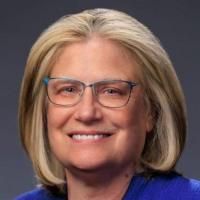Early clinical phenotype of late onset Pompe disease: Lessons learned from newborn screening.
Date
2022-03
Journal Title
Journal ISSN
Volume Title
Repository Usage Stats
views
downloads
Citation Stats
Attention Stats
Abstract
Purpose
Thoroughly phenotype children with late-onset Pompe disease (LOPD) diagnosed via newborn screening (NBS) to provide guidance for long-term follow up.Methods
Twenty infants ages 6-21 months with LOPD diagnosed by NBS underwent systematic clinical evaluation at Duke University including cardiac imaging, biomarker testing, physical therapy evaluation, and speech-language pathology evaluation.Results
Of the 20 infants, four were homozygous for the "late-onset" IVS1 splice site variant c.-32-13 T > G, fourteen were compound heterozygous, and two did not have any copies of this variant. None of the patients had evidence of cardiomyopathy or cardiac rhythm disturbances. Biomarker testing showed an increase in CK, AST, and ALT in 8 patients (40%) and increase in Glc4 in two patients (10%). All patients demonstrated postural and kinematic concerns. Three patients (17%) scored below the 10%ile on the Alberta Infant Motor Scale (AIMS) and 15 patients (83%) scored above the 10%ile. Speech-language pathology assessments were normal in all patients and mild feeding/swallowing abnormalities were noted in nine patients (45%).Conclusion
Our data show high variability among children with LOPD diagnosed via NBS. Careful physical therapy evaluation is necessary to monitor for subtle musculoskeletal signs that may reflect early muscle involvement. Patients should be monitored closely for symptom progression.Type
Department
Description
Provenance
Subjects
Citation
Permalink
Published Version (Please cite this version)
Publication Info
Huggins, Erin, Maggie Holland, Laura E Case, Janet Blount, Andrew P Landstrom, Harrison N Jones and Priya S Kishnani (2022). Early clinical phenotype of late onset Pompe disease: Lessons learned from newborn screening. Molecular genetics and metabolism, 135(3). pp. 179–185. 10.1016/j.ymgme.2022.01.003 Retrieved from https://hdl.handle.net/10161/27294.
This is constructed from limited available data and may be imprecise. To cite this article, please review & use the official citation provided by the journal.
Collections
Scholars@Duke

Erin Huggins

Laura Elizabeth Case
Laura E Case, PT, DPT, MS, PhD, PCS, C/NDT is a board-certified clinical specialist in pediatric physical therapy. She has dedicated her career to teaching, research in childhood-onset neuromusculoskeletal disorders, and to the lifelong treatment of people with childhood-onset neurological and neuromuscular disorders such as cerebral palsy, traumatic brain injury, Duchenne muscular dystrophy, spinal muscular atrophy, Pompe disease, myelodysplasia, juvenile rheumatoid arthritis, and brachial plexus injury.
She has been involved in numerous clinical trials for the treatment of disorders including Pompe disease and other metabolic disorders, cerebral palsy, Duchenne muscular dystrophy, and spinal muscular atrophy. Dr. Case has participated in the development of international guidelines for the management of Duchenne muscular dystrophy, Pompe disease, and other glycogen storage diseases.
She teaches and consults internationally, has worked on a number of Center for Disease Control (CDC) task forces, has served on numerous committees and task forces in the pediatric section of APTA, served two terms as NC State Representative to the APTA Section on Pediatrics, and is a member of the North American Pompe Registry Board of Advisors.

Andrew Paul Landstrom
Dr. Landstrom is a physician scientist who specializes in the care of children and young adults with arrhythmias, heritable cardiovascular diseases, and sudden unexplained death syndromes. As a clinician, he is trained in pediatric cardiology with a focus on arrhythmias and genetic diseases of the heart. He specializes in caring for patients with heritable arrhythmia (channelopathies) such as long QT syndrome, Brugada syndrome, catecholaminergic polymorphic ventricular tachycardia, and short QT syndrome. He also specializes in the evaluation of children following a cardiac arrest or after the sudden and unexplained death of a family member. He has expertise in cardiovascular genetics and uses it to identify individuals in a family who may be at risk of a disease, even if all clinical testing is negative. As a scientist, he is trained in genetics and cell biology. He runs a research lab exploring the genetic and molecular causes of arrhythmias, sudden unexplained death syndromes, and heart muscle disease (cardiomyopathies). He utilizes patient-derived induced pluripotent stem cells and genetic mouse models to identify the mechanisms of cardiovascular genetic disease with the goal of developing novel therapies.

Harrison N. Jones

Priya Sunil Kishnani
RESEARCH INTERESTS
A multidisciplinary approach to care of individuals with genetic disorders in conjunction with clinical and bench research that contributes to:
1) An understanding of the natural history and delineation of long term complications of genetic disorders with a special focus on liver Glycogen storage disorders, lysosomal disorders with a special focus on Pompe disease, Down syndrome and hypophosphatasia
2) ) The development of new therapies such as AAV gene therapy, enzyme therapy, small molecule and other approaches for genetic disorders through translational research
3) The development and execution of large multicenter trials to confirm safety and efficacy of potential therapies
4) Role of antibodies/immune response in patients on therapeutic proteins and AAV gene therapy
. Glycogen Storage Disease (GSD): We are actively following subjects with all types of Glycogen Storage Disease, with particular emphasis on types I, II, III, IV, VI and IX. The goal of the treatment team is to better determine the clinical phenotype and long term complications of these diseases. Attention to disease manifestations observed in adulthood, such as adenomas and risk for HCC, is of paramount importance in monitoring and treating these chronic illnesses. We are establishing clinical algorithms for managing adenomas, and the overall management of these patients including cardiac, bone, muscle and liver issues. A special focus is biomarker discovery, an Omics approach including metabolomics and immune phenotyping. We are working on AAV gene therapy for several hepatic GSDs
.Lysosomal Storage Disease: The Duke Lysosomal Storage Disease (LSD) treatment center follows and treats patients with Pompe, Gaucher, Fabry, Mucopolysaccharidosis, Niemann Pick, LAL-D and other LSD's. The Duke Metabolism Clinical Research Team is exploring many aspects of enzyme replacement therapy (ERT), including impact on different systems, differential response, and long term effects. Other symptomatic and treatment interventions for this category of diseases are also being explored in the context of clinical care.
. Pompe Disease: The care team has extensive experience in the care of infants and adults with Pompe disease and was instrumental in conducting clinical trials and the bench to bedside work that led to the 2006 FDA approval of alglucosidase alfa, the first treatment for this devastating disease. We are currently focusing on role of antibodies/immune response on patient outcome and role of immune modulation/immune suppression as an adjunct to ERT. Our team is also working on AAV gene therapy for Pompe disease. A focus is on newborn screening (NBS) and understanding the clinical phenotype and management approaches for babies identified via NBS
. Hypophosphatasia: We follow a large cohort of patients with HPP. The goal is to understand the features of the disease beyond bone disease, development of biomarkers, role of ERT and immune responses in HPP
. Neuromuscular disorders: We are collaborating with neurologists, cardiologists and neuromuscular physicians to serve as a treatment site for clinical trials in these diseases. We are currently involved in trials of DMD and are working closely on setting up collaborations for studies in SMA.
Unless otherwise indicated, scholarly articles published by Duke faculty members are made available here with a CC-BY-NC (Creative Commons Attribution Non-Commercial) license, as enabled by the Duke Open Access Policy. If you wish to use the materials in ways not already permitted under CC-BY-NC, please consult the copyright owner. Other materials are made available here through the author’s grant of a non-exclusive license to make their work openly accessible.
